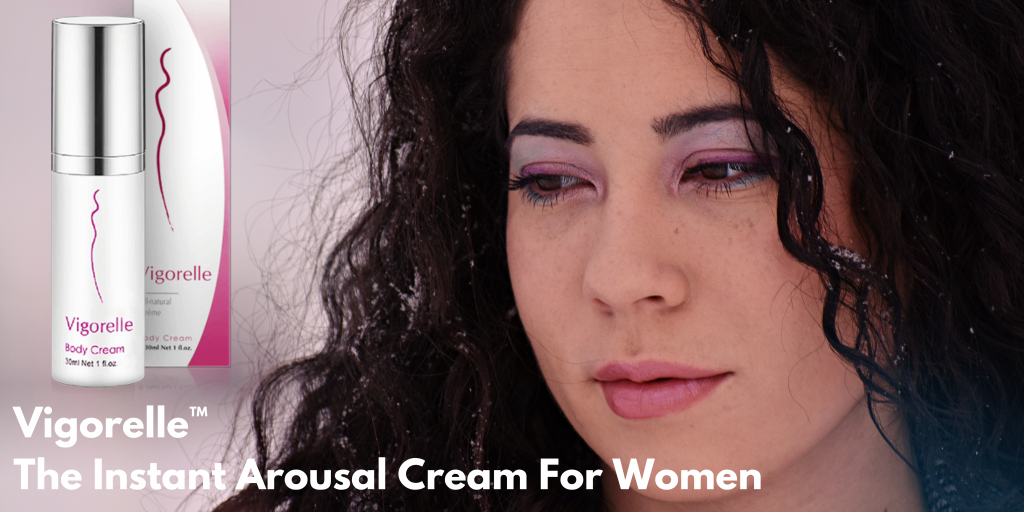If the hottest thing you want your men to do now is dishwashing, Honey, you have a problem.
I have no desire for my husband
You could be any one of millions of women whose interest in sex with their partner has been replaced by an interest in just getting through the day.
We can easily lose our female libido in dirty dishes, scratchy beards, and lack of sleep.
At times, you may yearn for the days of spontaneous desire for your husband.
But mostly you just want him to help you more at home.
What is libido in women?
Libido is the desire to make love, the physical drive, the feeling that you really want to.
Libido makes your sex enjoyable and satisfying.
The libido of a woman may drop a little or fall completely for many different reasons.
What a woman doesn’t realize very often is that at age 40, her hormonal levels may fluctuate, and this, with batteries of laundry and a less romantic husband, adds to her lack of libido.
In our youth, libido has much to do with biology and the primary impulses to reproduce.
While we are young and healthy, these impulses are set in motion.
We want to have sex, and we’re likely to enjoy it.
It makes biological sense that sex drive becomes less intense after 40.
But that doesn’t mean we have to forgo sex.
Restoring Libido is a process that involves a physical, mental, and emotional transformation for you and your partner.
It sounds like a lot of work, but it can be a fun and rewarding journey that can lead to a more enjoyable sex life and intimacy.
Studies show that one in three women suffers from libido problems.
If you are a female over the age of 30, have low libido, and feel unhappy about it, you have plenty of company.
- According to current research on American women, about 40% of us over the age of 30 have “impaired sexual response.”
- 20% of women with impaired sexual response say that this is a source of significant distress.
Many women would like to recreate a satisfying sex life.
Feel free to admit it and ask for help.

Are you ready for joy, pleasure, and healthy sexuality?
If this direction feels right to you, it’s time to give some thought to where you fall on your own list of priorities.
Rejuvenating libido is a multidimensional process.
Be ready to invest time, attention, and energy in this journey.
Also, be prepared to change your lifestyle and diet.
Believe me, libido works best when it is tended and cultivated.
Some great reasons to restore libido and have sex
— Sex is a good cardiovascular workout.
— Sex helps maintain flexibility and strength.
— Sex relieves stress.
— Sex increases levels of important feel-good brain chemicals and hormones.
— Sex helps partners bond and create greater intimacy.
— Sex improves sleep quality.
— Sex helps protect men against prostate cancer.
Many women consider low libido as a normal part of the aging process.
But low desire can be a clear warning sign of suboptimal health.
When a woman is physically unwell, her libido is one of the first things to go.
We often wonder why something that dominated their younger lives has dimmed or vanished altogether. We miss those intense feelings and the satisfaction of sexual connection.
Don’t let anyone tell you that you should not return a flagging libido back, if this is something that is important for you.
Talk to Your Doctor about libido issues
Surveys show that menopausal women are the most likely to have low libido.
It makes sense because menopause brings a significant drop in levels of the very hormones that help create sex drive.
Women who have had surgery to remove their ovaries are plunged into instant menopause and have the most pronounced and sudden loss of desire for sex.
Low hormones are the physical reality behind many lost libidos.
Consult with your doctor about hormone replacement therapy. Based on what testing and symptoms indicate, your doctor may prescribe hormones as part of a treatment plan.
Optimal health and libido are created by hormone balance. If your hormones are out of balance, restoring your sex drive will usually include hormone replacement. But there’s more to it than hormones.
Your hormonal levels are only part of the big picture.
Here are some of the physical factors that can derail libido even when hormones are balanced:
• High levels of stress hormones.
• Lack of exercise.
• Poor diet, most often too much sugar and refined carbohydrates.
• Medications or recreational drugs that reduce libido.
• Excess alcohol.
Your Man and Your Libido
Can your partner affect your libido?
Yes, they CAN.
Men can have their own issues with libido and sexuality that contribute to or worsen the issues their partners face. Some men experience the stereotypical “midlife crisis,” which can contribute to marital turmoil that makes one or both partners avoid sex.
Other men start to settle into what might be appropriately termed a midlife decline, which may include loss of energy, loss of libido, or erection problems that lead to avoidance of sex.
It is amazing how many couples have not discussed their lack of sex and intimacy with their partners.
Many women are afraid they will insult their spouse if they mention his erection issues, but men can also be successfully treated for low libido and erectile dysfunction.
Some men aren’t interested in making sex an enjoyable experience for their partner.
It’s no surprise that a woman whose sex life has been unsatisfying loses her desire for sex.
And lastly, some men (and I’ll be fair, some women) let themselves go so much that they are no longer sexually appealing to their partners.
Libido can be chilled by either partner’s obesity, sloppiness, or complacency, especially in a long-term union.
Your Brain and Your Libido
We all know the saying about the brain as the most important sex organ.
Libido is tied to physical factors, but for women, in particular, it’s also strongly tied to emotions, self-esteem, trust, and other psychological factors.
You need to feel loved, loving, and secure to be in the mood for sex.
Desire grows more reliably with strong relationships and intact self-esteem.
Brain chemicals that control mood, intertwined with thoughts and emotions, can affect the way you think and feel about everything, including sex.
An approach to restoring libido that addresses the whole instead of its individual working parts has the best chance of success.
Your lifestyle plays a pivotal role
Do you live a harried, stressed-out life?
Do you eat poorly?
Do you exercise?
Do you take care of yourself or devote yourself completely to others?
Do you make choices in your life that keep you physically and psychologically in poor health?
A body and mind in poor condition will not be ready for pleasant sexual relationships.
Pain during intercourse is a common reason women lose interest in sex. Painful sex is often the result of hormonal changes that thin the walls of the vagina and reduce natural lubrication, but it can also spring from a history of sexual abuse or sexual difficulties.
The body can create physical pain where there is unresolved psychological pain. If past or present trauma underlies pain related to sex, it needs to be addressed before libido can be restored.
- Studies have shown that some women have normal physical responses to sexual arousal yet they have no desire for sex. For example, their sexual organs may respond to an erotic film, but that response doesn’t necessarily reach the brain and translate into wanting to have sex. For these women, there is a disconnect between the body’s physical response and the level of desire perceived by the mind.
Relationship problems may be to blame, or the overwhelming stress of day-to-day life may have literally shut down the connections between the mind, emotions, and body.
Barbara Carrellas, in her book Urban Tantra says,-
The statement ‘I don’t have time for sex’ usually has little to do with time or sex.
More often, it means
‘I’m tired,’ or ‘I really need to work,’ or ‘I’d really rather work.’
It can mean ‘I want to spend more time with the children’ or
‘I have spent way, way too much time with the children.’
It often means
‘I need some time completely to myself—away from everything and everyone. I have nothing left to give.’
Our desire for sex (especially for partner sex) can be depleted by, among other things, anxiety, depression, antidepressants, lack of work, overwork, or even just an obsession with our children.
It’s not that we don’t have the time for sex,
it’s just that other things seem more important, necessary, or enjoyable than sex.
Ironically, sex is probably just the thing to alleviate depression, exhaustion, anxiety, and obsession…”
Tune in for your best sex ever
A particular mood can be enormous support of a healthy libido.
About what is your mind wandering during sex?
To the chores of daily life and the never-ending to-do lists?
These unwelcome thoughts prevent you from fully engaging and enjoying.
Without the engagement of the brain, adequate arousal may not happen, and this will usually result in a less than satisfying sexual experience.
Mindfulness is about being in the moment, about finding ways to be present and aware, still, the mind’s chatter, and fully engage the sensory, sensual self.
Fresh Consciousness of Libido
As libido ebbs with age and the day-to-day humdrum and stresses of life threaten to douse romantic fires altogether, we have the opportunity to transform sex into a source of pleasure and deep connectedness with our partner, as well as a self-healing, a self-loving practice that isn’t dictated by the drive to repopulate the planet.
Sexuality in midlife shifts from an intense biological imperative to a conscious choice.
In making an intentional choice to rejuvenate libido, we also choose to embrace life and its pleasures fully.
FAQs: How to Increase Libido in Women
Question: What is libido in women, and why is it important?
Libido refers to a woman’s desire for sexual intimacy and the physical drive to engage in sexual activities. It is an essential aspect of a fulfilling and intimate relationship. A healthy libido contributes to overall sexual satisfaction and helps strengthen the emotional bond between partners.
Question: Why does a woman’s libido decrease with age?
As women age, hormonal levels naturally fluctuate, which can lead to a decrease in libido. Factors such as declining estrogen and testosterone levels, stress, fatigue, and lifestyle changes can all contribute to a reduced sex drive. However, it’s important to note that a decrease in libido is not inevitable and can be addressed through various strategies.
Question: Can hormonal imbalances affect female libido?
Yes, hormonal imbalances can significantly impact female libido. Fluctuations in estrogen, progesterone, and testosterone levels can disrupt the delicate hormonal balance necessary for a healthy sex drive. Hormone replacement therapy (HRT) may be considered in some cases to restore hormonal equilibrium and improve libido.
Question: How does stress impact a woman’s libido?
High levels of stress can negatively affect a woman’s libido. Stress triggers the release of cortisol, a hormone that can interfere with the production of sex hormones and diminish sexual desire. Additionally, stress can distract the mind and make it difficult to focus on sexual intimacy. Managing stress through relaxation techniques, therapy, or lifestyle changes can help restore libido.
Question: Can a poor diet and lack of exercise contribute to low libido?
Yes, a poor diet and sedentary lifestyle can contribute to low libido in women. Unhealthy eating habits and a lack of physical activity can lead to weight gain, reduced energy levels, and decreased self-confidence, all of which can negatively impact sexual desire. Incorporating a balanced diet and regular exercise into one’s routine can boost overall well-being, enhance body image, and improve libido.
Question: Are there medications or drugs that can reduce libido in women?
Certain medications, such as antidepressants, antihistamines, and some birth control pills, may have side effects that can reduce libido in women. It is important to discuss any concerns about medication-related libido issues with a healthcare provider, as alternative options or adjustments to the dosage may be considered.
Question:Does alcohol consumption affect female libido?
Excessive alcohol consumption can have a detrimental effect on female libido. While a small amount of alcohol may initially lower inhibitions and increase desire, excessive alcohol intake can impair sexual function, decrease arousal, and interfere with the ability to achieve orgasm. Moderation or reducing alcohol consumption can help improve libido.
Question: Can a woman’s partner influence her libido?
Yes, a woman’s partner can influence her libido. Relationship dynamics, emotional connection, and the level of intimacy between partners can greatly impact sexual desire. Open communication, mutual understanding, and efforts to create a supportive and loving environment can positively influence a woman’s libido.
Question: How do relationship dynamics affect female libido?
The quality of a relationship and the level of emotional connection can have a significant impact on female libido. Trust, intimacy, communication, and a sense of emotional safety play crucial roles in fostering a healthy and satisfying sexual relationship. Addressing any relationship issues or seeking couples therapy can help improve libido.
Question: Can unresolved psychological issues or trauma contribute to low libido?
Yes, unresolved psychological issues or past trauma can contribute to low libido in women. Emotional well-being and a positive mindset are closely linked to sexual desire. Experiences such as sexual abuse, relationship traumas, or body image concerns can have a profound effect on a woman’s ability to feel desire and engage in sexual activities. Seeking therapy or counseling can provide support in healing emotional wounds and restoring libido.
Question: Is pain during intercourse a common reason for decreased libido in women?
Unfortunately, pain during intercourse is a common issue that can significantly affect a woman’s libido. Physical discomfort or conditions such as vaginal dryness, infections, or hormonal imbalances can make sex painful and lead to a loss of interest in sexual activities. Seeking medical help, discussing concerns with a healthcare provider, and exploring treatment options can help address the underlying causes and restore both comfort and desire.
Question: What role does the brain play in female libido?
The brain plays a crucial role in female libido. Sexual desire is not solely driven by physical factors but is deeply intertwined with emotions, thoughts, and psychological well-being. Feelings of love, trust, and intimacy contribute to a woman’s sexual arousal and desire. Creating a positive mindset, fostering emotional connection, and addressing any psychological barriers can enhance libido and make sexual experiences more fulfilling.
Question: How does mindfulness and being present in the moment enhance libido?
Mindfulness and being present in the moment can significantly enhance libido by allowing individuals to fully engage in their sensual experiences. By focusing on the present and quieting the mind’s distractions, one can fully immerse themselves in the pleasurable sensations of intimacy. Mindfulness practices, such as deep breathing, meditation, or sensory awareness exercises, can heighten sexual arousal and strengthen the connection between mind and body.
Question: Are there any natural remedies or supplements that can boost female libido?
There are various natural remedies and supplements that have been suggested to boost female libido. Some commonly mentioned options include maca root, tribulus terrestris, ginkgo biloba, and certain herbal formulations. While individual responses may vary, it’s essential to consult with a healthcare professional before trying any supplements, as they can interact with medications or have potential side effects.
Question: Can hormone replacement therapy help restore libido in women?
Hormone replacement therapy (HRT) can be effective in restoring libido for some women. HRT aims to balance hormone levels, particularly estrogen and testosterone, which can positively impact sexual desire. However, it’s crucial to consult with a knowledgeable healthcare provider who can assess hormone levels and determine the appropriate course of treatment based on individual needs and potential risks.
Question: When should I consult a healthcare provider about my low libido?
It is recommended to consult a healthcare provider about low libido if it causes distress, affects the quality of your relationship, or has a significant impact on your overall well-being. A healthcare professional can help assess potential underlying causes, such as hormonal imbalances, psychological factors, or medical conditions, and provide appropriate guidance and treatment options to address the issue.
Question: How long does it take to see improvements in libido with lifestyle changes?
The timeline for seeing improvements in libido with lifestyle changes can vary for each individual. Making positive changes in diet, exercise, stress management, and overall self-care can gradually enhance libido over time. It’s important to approach these changes with patience and consistency, allowing the body and mind to adjust and respond positively. Results may be experienced within weeks to months, but everyone’s journey is unique.
Question: Can regular exercise and a healthy diet improve female libido?
Yes, regular exercise and a healthy diet can positively impact female libido. Exercise promotes circulation, boosts energy levels, and releases endorphins, which can improve overall mood and sexual well-being. A nutrient-rich diet can support hormone production, enhance energy levels, and promote overall vitality, all of which contribute to a healthy libido.
Question: Are there specific techniques or exercises that can enhance female libido?
While there are no one-size-fits-all techniques, certain exercises, and practices can enhance female libido. Kegel exercises, which strengthen the pelvic floor muscles, can improve sexual sensations and orgasmic response. Sensate focus exercises, where couples explore non-sexual touch and gradually increase intimacy, can also help reignite desire and improve sexual communication. Experimenting with different forms of sensual and sexual stimulation, such as massage or using erotic literature, can also enhance libido.
Question: How can I prioritize my sexual well-being and make time for intimacy?
Prioritizing sexual well-being and making time for intimacy requires a conscious effort and commitment. Start by openly communicating with your partner about your needs, desires, and the importance of intimacy in your relationship. Set aside dedicated time for intimacy, free from distractions and obligations. Explore ways to reduce stress and create a relaxing environment that promotes connection and desire. Remember, investing in your sexual well-being is an investment in your overall happiness and relationship satisfaction.
The secret ingredients for a great sex drive
There are many variations on the theme of lost libido, and it’s important to understand that everyone expresses their sexuality, or lack of it, a little bit differently.
There is no single definition of a healthy libido. Part of the journey to restoring libido is to rediscover and recreate your concept of a healthy, happy, satisfying sex life.
Your libido is unique, and your plan for restoring it—or for making it stronger and better than it’s ever been—will be unique as well.
Resolving your libido problems can be simple and easy.
I’ve got secret ingredients in my libido recipe:
Vigorelle™ is the leading female libido enhancement product*.
It’s an all-natural herbal cream that’s activated by touch. There are NO pills to take, NO manuals to read, NO awkward positions to learn. Just a sensuous, deliciously smooth cream to transform every touch into pure sensual pleasure.
Vigorelle™ is 100% safe, packaged in a state-of-the-art medical-grade facility.
It contains no harmful petrochemicals and is made with the highest-quality, natural ingredients, chosen by an experienced naturopath for their sex-enhancing properties.
*A single bottle with a pump contains a full 30-day supply. Grab 2 or more bottles and be automatically qualified for your choice of a FREE Bonus Gift:
(1) UltraHair Away™, (2) GenF20™ HGH Releaser, or (3) The Mini Vibrator.
Increase your female sensitivity naturally. The rewards are well worth it.
It will make your marriage stronger and allow you to explore new facets of your partnership.
Unveiling the Magic of Emotional Intimacy in Marriage: A Journey to the Heart
Reignite the Spark: How to get your Partner interested in You Again





